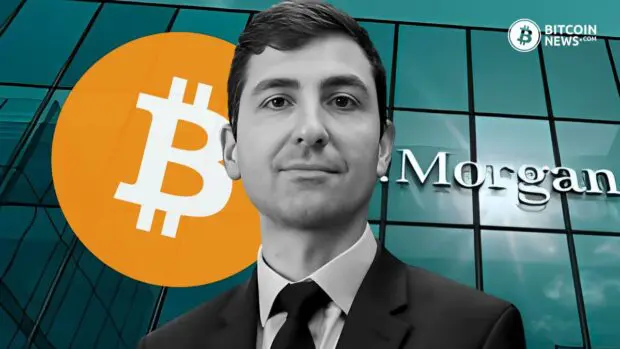Bitcoin enthusiasts and investors are abuzz with the recent approval of spot Bitcoin Exchange-Traded Funds (ETFs) by the U.S. Securities and Exchange Commission (SEC). JPMorgan analysts weigh in on the potential impact of Bitcoin ETFs, forecasting significant capital movement within the digital asset space.
JPMorgan’s Take on Bitcoin ETFs Fresh Capital Influx
Contrary to widespread expectations of a massive influx of fresh capital into the Bitcoin market due to the SEC’s approval, JPMorgan analysts express skepticism. In a research report, they question the optimism shared by many market participants, suggesting that regulatory developments will play a crucial role in determining the actual fresh capital inflow. The report doubts the new investment vehicle would attract actual fresh capital inflow, but instead, will draw significant sums from other funds.
Researchers headed by Nikolaos Panigirtzoglou wrote:
“We are skeptical of the optimism shared by many market participants at the moment that a lot of fresh capital will enter the crypto space as a result of the spot bitcoin ETF approval.”
Rotational Capital Movement Predictions
While the analysts are cautious about new capital entering the market, they predict a substantial rotation of existing funds. According to their estimates, newly launched spot Bitcoin ETFs may attract up to $36 billion through rotational capital. This movement is expected to come from various sources, including Bitcoin futures-based ETFs, Grayscale Bitcoin Trust (GBTC), and retail investors transitioning from digital wallets to Spot Bitcoin ETFs.
They said:
“We instead believe that the amount of fresh capital entering the crypto space will likely be more of a function of regulations and in particular a function of how much room regulators will allow for the crypto ecosystem to encroach into the traditional financial system over time.”
Grayscale Bitcoin Trust’s Potential Outflows
JPMorgan emphasizes potential outflows from GBTC, noting that up to $13 billion could exit the trust. The analysts highlight GBTC’s high fees (1.5%) compared to the fees of newly introduced spot Bitcoin ETFs. They anticipate massive amounts exiting GBTC, driven by investors taking profits from discounted GBTC shares purchased in the secondary market over the past year.
The analysts added:
“If over time GBTC loses its crown as the biggest bitcoin fund in the world, then the liquidity advantage that it currently enjoys due to its size would also be lost, thus inducing even more outflows.”
Retail Investors and Institutional Shifts
Retail investors, according to JPMorgan, are likely to favor spot Bitcoin ETFs, potentially causing up to $20 billion in inflows. The ease of access and lower fees associated with these ETFs could attract investors away from digital wallets at exchanges. On the institutional front, the analysts foresee a shift from futures-based ETFs and GBTC to more cost-effective spot Bitcoin ETFs, particularly if GBTC fails to reduce its fees.
The SEC’s approval of 11 spot Bitcoin ETFs is hailed as a historic move, marking a departure from years of regulatory opposition. Despite this milestone, the market response has been relatively muted. Analysts shift the focus from the approval itself to the crucial question of how much capital these new ETFs will attract.
Factors Influencing Success: Fees and Liquidity
JPMorgan analysts highlight the importance of fees and liquidity in determining the success of the newly created ETFs. They emphasize that the competition among ETFs will likely hinge on factors such as fee structures and overall liquidity, rather than a surge of new capital into the Bitcoin space.
The analysts said:
“We believe fees and liquidity are likely to play a key role in terms of how much money will enter the newly created ETFs.”
Retail vs. Institutional Preferences
The analysts conclude that retail investors are more inclined to embrace spot Bitcoin ETFs, while institutional investors holding digital assets in fund format may pivot towards the newly introduced, more cost-effective options. The potential shift in the market dynamics could reshape the landscape of Bitcoin-related investment vehicles.
While the excitement around spot Bitcoin ETFs is palpable, JPMorgan’s cautious outlook suggests that the real game-changer might be the rotation of existing capital rather than an immediate influx of new funds into the Bitcoin ETFs market. As the market adapts to this groundbreaking development, all eyes remain on how investors, both retail and institutional, will navigate this evolving landscape.










